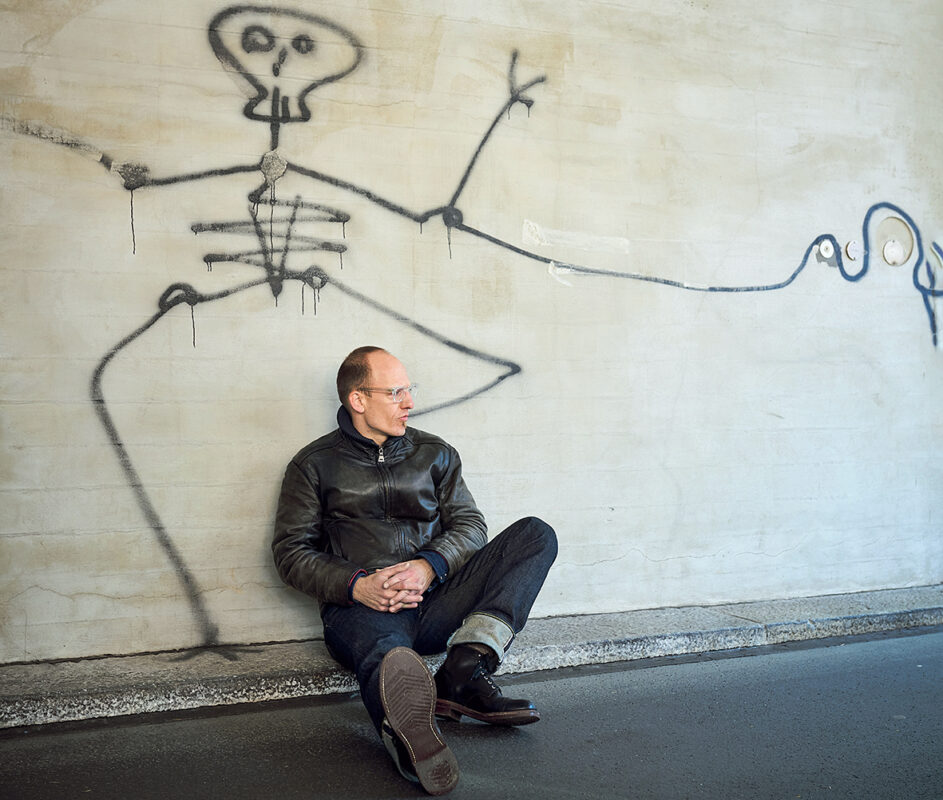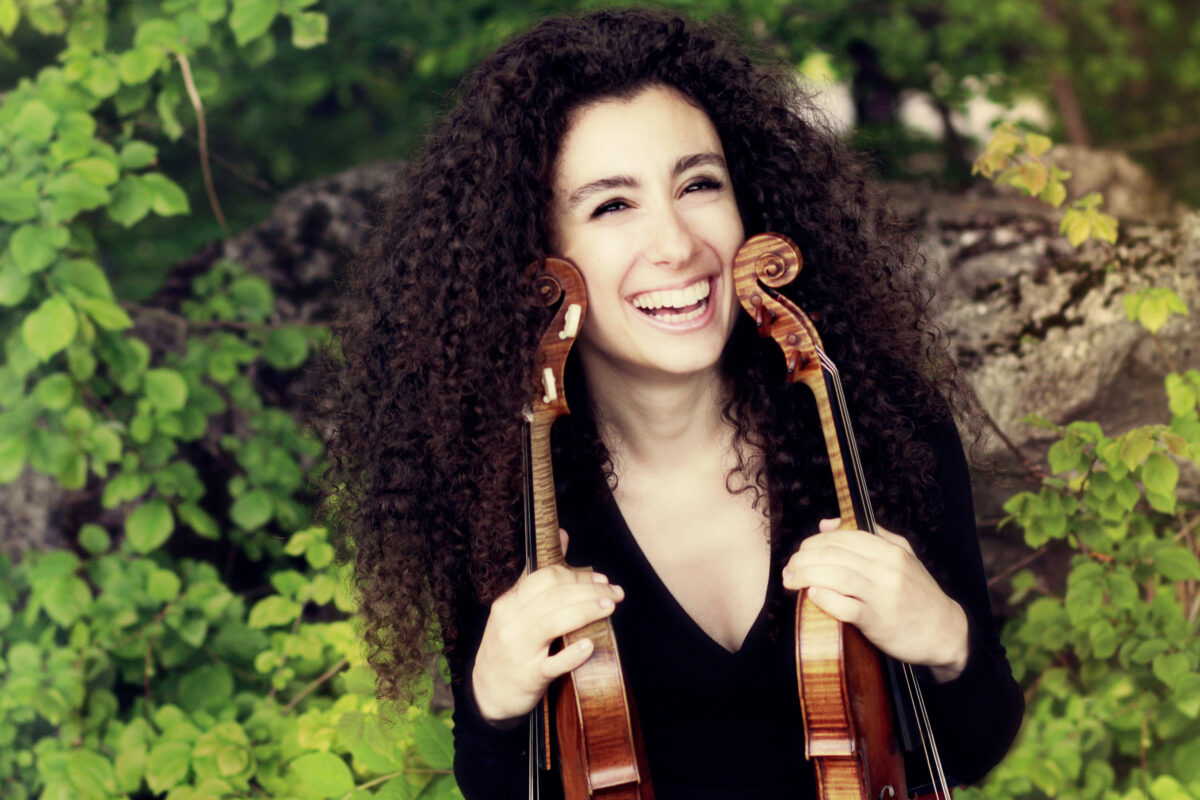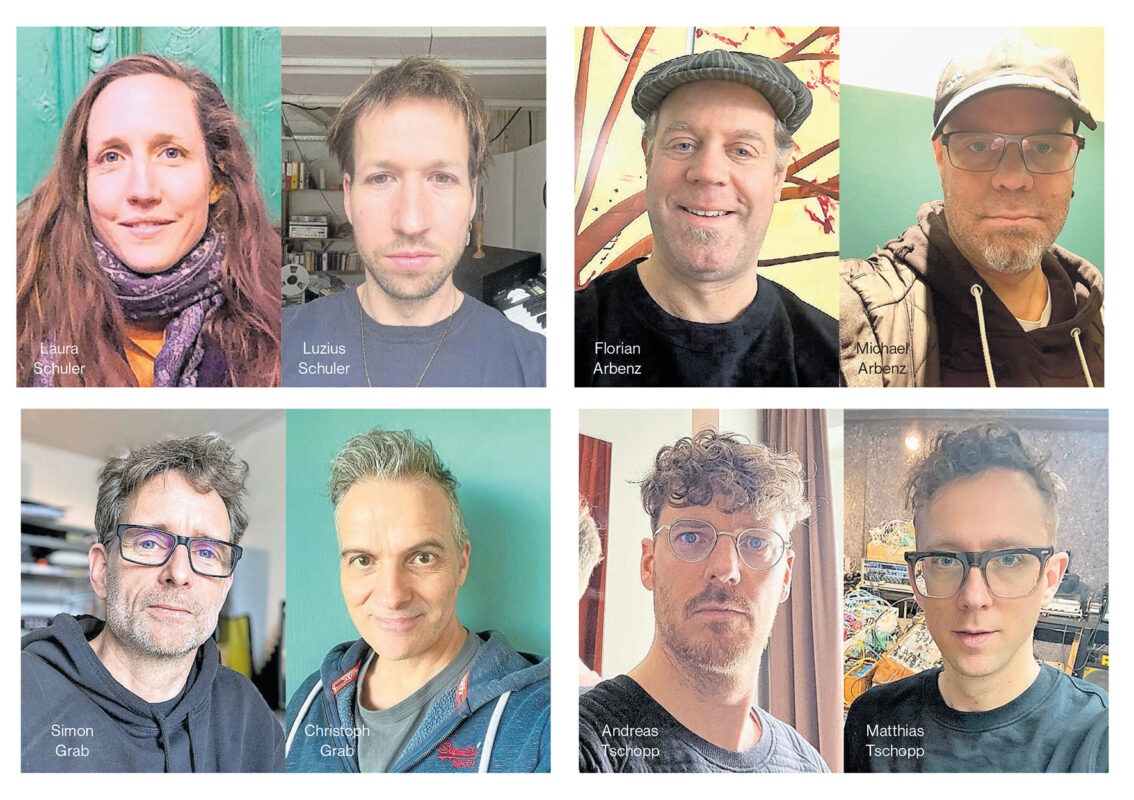Gstaad - Zurich - Dresden
Daniel Hope has conducted the Zurich Chamber Orchestra for five years, is at home at the Menuhin Festival and puts his concerts in the Frauenkirche at the service of dialog.

Georg Rudiger: Last year, the Menuhin Festival in Gstaad was canceled. Now you played the opening concert on July 16 as this year's "Artist in Residence" in the packed church in Saanen. How was that for you?
Daniel Hope: Beautiful. Saanen Church is a very special place for me because I heard my first concerts here as a child with Yehudi Menuhin, the Zurich Chamber Orchestra and many others. I feel at home here. To be able to make music here with my friends after this long enforced break touches me deeply. The whole day was emotional for me. This morning, the funeral service for the late Chairman of the Board of Directors and co-founder of the festival Leonz Blunschi took place here, at which I also played.
How did the Menuhin Festival influence your enthusiasm for music?
The wealth of talent and inspiration that emanated from Yehudi Menuhin and his friends is unimaginable. There was the Camerata Lysy of the great Argentinian violinist Alberto Lysy, but greats such as Stéphane Grappelli, Mstislav Rostropovich and Ravi Shankar also came and went. They all played here in this church. That infected my life with music.
What defines the festival in its current form for you?
It's much bigger and much broader than it used to be - director Christoph Müller has done an excellent job with his visionary power. For me, however, the intimate chamber music concerts in the churches in the Saanenland are still the heart of the festival - and not the large orchestral concerts in the festival tent.
You were free to choose the program for your three concerts. The works should only have something to do with the festival motto "London". You opted for programs in which singing is also important.
In my concerts, I always try to tell a story and look for connections between the pieces. Tonight, Edward Elgar was the thematic bracket, whose violin concerto was played by 16-year-old Yehudi Menuhin in 1932 as a stand-in for Fritz Kreisler. In the next concert with the Leipzig vocal ensemble Amarcord, we will take a journey through 500 years of English music, from William Byrd and Thomas Tallis to the music of today. And at the concert with my friend Thomas Hampson, English folk music will play a special role.
Since 2016, you have been the musical director of the Zurich Chamber Orchestra (ZKO), which has also been a frequent guest in Gstaad. What makes the orchestra special?
It is a master ensemble - each and every one of us radiates an enormous passion for music, but together we are the strongest. We make chamber music on a big stage. This is the first orchestra I've ever heard in my life. I never dared to dream that I would be able to conduct it many decades later.
The motto of the new season is "Metamorphosis". How will the orchestra transform?
We have probably all undergone a transformation in recent times. It was important to me to present individual musicians from the orchestra because they all have something to say - that's why there are many double concerts or concerti grossi. And we are turning to America, which has also changed a lot over the last twelve months; we have also just recorded an album with this program (Editor's note published by Deutsche Grammophon). With our new five-day festival (Editor's note "Fantasies", June 24 to 28, 2022), we will have an even stronger presence in the city.
Like Yehudi Menuhin, you have no fear of contact with other styles of music. The ZKO also gives two concerts with the Swiss pop musician Marc Sway and plays film music. Are there voices in the orchestra that take a critical view of crossover projects?
As long as the projects are selected with great care, the orchestra is happy to participate. We have now had Till Brönner, a great jazz trumpeter, as a guest, with whom we premiered several commissioned compositions. In March 2022, we will Moby Dick in a staged concert with projection and dance. The music was written by Caroline Shaw.
You also play regularly with the ZKO in Dresden's Frauenkirche, where you have also been programming the concerts as artistic director for three years. What guidelines do you have there?
I am responsible for all classical concerts in the church. Our cantor is in charge of the church music. In my very first year, I created a concert series in the lower church for young artists, which was very well received. I program around 30 or 35 concerts a year in the large church.
What role does this specific location play?
It is not a normal concert venue - that is very important to me. The Frauenkirche is open to all religions. Dialogue and discourse are always sought here. There are many meetings of thinkers, writers, philosophers and human rights activists. The Frauenkirche is a place of exchange, reflection and reconciliation, especially between England and Germany, between Coventry and Dresden, whose churches were destroyed in the Second World War. Classical music is part of this process. It opens people's souls.








